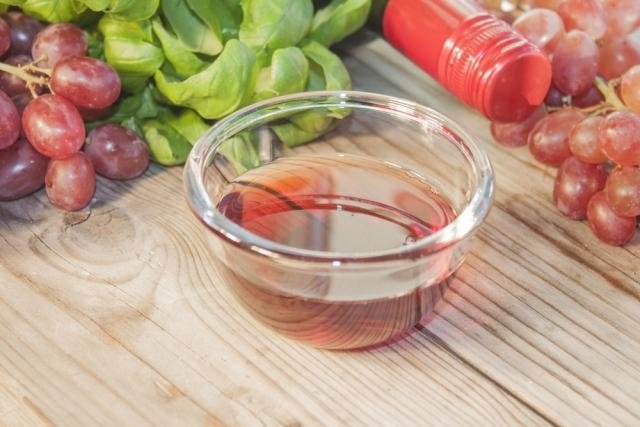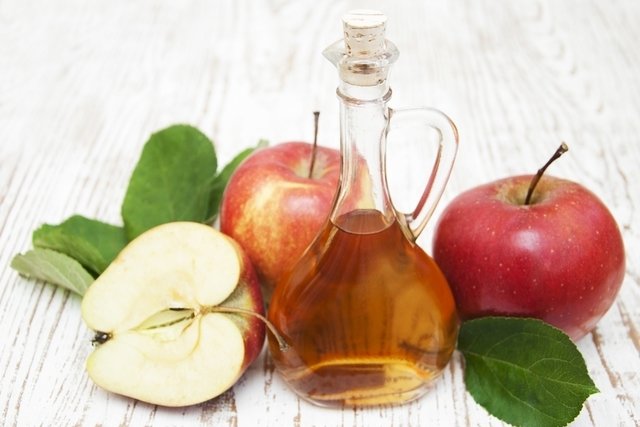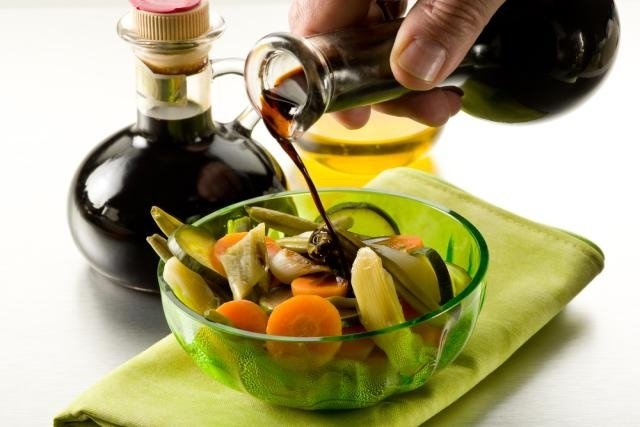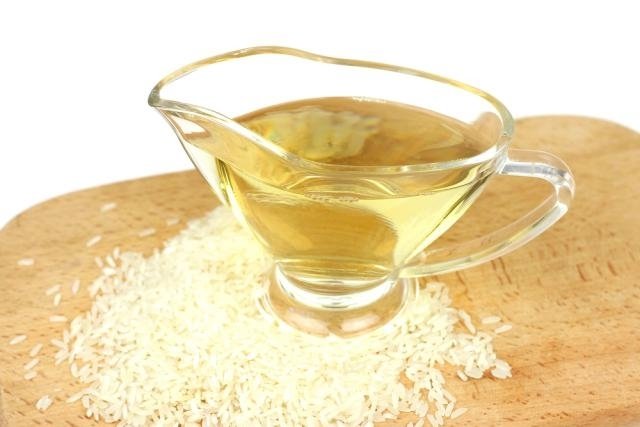Vinegar can be made from wines, such as white, red or balsamic vinegar, or from rice, wheat and some fruits, such as apples, grapes, kiwi and starfruit, and can be used to season meat. , salads and desserts or added to juices.
Vinegar has an antibacterial action, helps improve digestion, regulate blood sugar, promote weight loss, regulate fat metabolism and act as an antioxidant, thus helping to prevent diseases.
1. Alcohol vinegar

White vinegar or alcohol vinegar is produced from the fermentation of alcohol from malt, corn or sugar cane, has a transparent color and is commonly used as a seasoning for meats and salads, being a good option to reduce the amount of salt used. to flavor food because vinegar gives enough flavor to food.
In addition, it is also the most used in cleaning fruits and vegetables, in addition to being able to act as a fabric softener, mold remover and odor neutralizer, especially in plastic containers that have stored food and animal urine in carpets and mattresses.
2. Fruit Vinegar

The best known are apple and grape vinegars, but it is also possible to make vinegars from other fruits, such as kiwi, raspberries, passion fruit and sugar cane.
Apple cider vinegar is rich in antioxidants and nutrients such as phosphorus, potassium, vitamin C and magnesium, while grape vinegar, also known as red wine vinegar, contains the antioxidants from purple grapes, which improve heart health and strengthen the immune system. See how apple cider vinegar can help you lose weight.
3. Balsamic Vinegar

It has a very dark color and denser consistency, with a sweet and sour flavor that is normally used as a seasoning for vegetable salads, meat, fish and sauces.
It is made from grapes, and provides the benefits of this fruit’s antioxidants, such as better cholesterol control, prevention of cardiovascular diseases and prevention of premature aging.
4. Rice Vinegar

Rice vinegar has the advantage of not containing sodium, a mineral that makes up table salt and is responsible for increasing blood pressure, and can be consumed more frequently by people with hypertension.
In addition, it may also contain antioxidants that help prevent diseases and amino acids, which are parts of proteins that improve the functioning of the body. Its greatest use is in sushi, as it is part of the ingredients used to make the rice used in oriental foods.
Other uses of vinegar
Due to its antifungal and antibacterial properties, vinegar has long been used as a wound cleanser and disinfectant.
Furthermore, vinegar is used to preserve vegetables, also helping to give a new flavor to the food. It also ensures good acidity in the stomach, which facilitates digestion and prevents intestinal infections, as stomach acidity helps kill fungi and bacteria that may be in food. See also how to use vinegar to control dandruff.
Nutritional information
The following table shows the nutritional information for 100 g of vinegar:
Bibliography
- PORTUGUESE FOOD INFORMATION PLATFORM. Food Composition: Vinegar. Available at: <http://portfir.insa.pt/foodcomp/food?18362>. Accessed on June 18, 2020
- CHEN Hengye; CHEN Tao et al. Vinegar Functions on Health: Constituents, Sources, and Formation Mechanisms. Comprehensive Reviews in Food Science and Food Safety. 00. 1-14, 2016

Sign up for our newsletter and stay up to date with exclusive news
that can transform your routine!
Warning: Undefined array key "title" in /home/storelat/public_html/wp-content/plugins/link-whisper-premium/templates/frontend/related-posts.php on line 12
Warning: Undefined array key "title_tag" in /home/storelat/public_html/wp-content/plugins/link-whisper-premium/templates/frontend/related-posts.php on line 13




